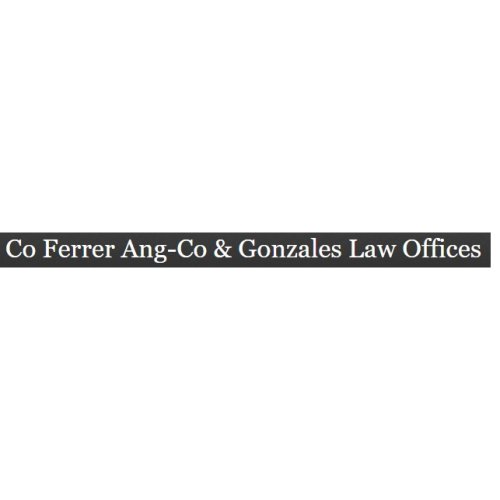Best Immigration Lawyers in San Juan
Share your needs with us, get contacted by law firms.
Free. Takes 2 min.
List of the best lawyers in San Juan, Philippines
Philippines Immigration Legal Questions answered by Lawyers
Browse our 15 legal questions about Immigration in Philippines and read the lawyer answers, or ask your own questions for free.
- Lifting for blocklist
- My father in-law had an argument with the homeowner president he's is just defending my mother.then after that the next day we received a letter from the immigrantion that our father need to go back to us.but my mom and father are already married.and they already registered here in the... Read more →
-
Lawyer answer by CAGUIA TAN & CUA Law Offices
You may contest the blacklisting of your father. We can definitely assist you with that.
Read full answer - Iraq Police Clearance
- Sir Good Day, I am Rino Octa Villaluz, a Filipino citizen. From April 9, 2019, to September 15, 2020, I worked for Cercis Limited (Jardin Agrodis) at Erbil Airport in Erbil, Iraq, as a Document Controller, HR Coordinator, and Site Secretary. I returned to the Philippines due to the pandemic.... Read more →
-
Lawyer answer by Romano Legal Services
I can facilitate the securing of an Iraqi clearance for you if you will sign a Special Power of Attorney in my favor for that purpose.
Read full answer - what should i do if i have ongoing case about bp22 and i was about to lodge my student visa?
- i already have my nbi clearance and no deragatory record is indicated but now i will lodge my student visa and now a bp22 is file against me im still waiting for my subpoena.i dont know what will i do now because i was thinking that my visa will.be denied... Read more →
-
Lawyer answer by Recososa Law Firm
Hello:We truly understand your worries, especially with something as important as your future studies abroad. You’ve worked hard to get this far, and we want you to know that you’re not alone. We’re here to help you sort this out...
Read full answer
About Immigration Law in San Juan, Philippines
San Juan, a city in Metro Manila, Philippines, is subject to the country's national immigration laws and policies. The Bureau of Immigration is the primary agency responsible for implementing Philippine immigration policies, and it operates under the jurisdiction of the Department of Justice. The immigration landscape in San Juan, like the rest of the country, is shaped by the Philippine Immigration Act of 1940 and subsequent amendments, which govern the entry, stay, and departure of foreign nationals.
Why You May Need a Lawyer
There are several scenarios where seeking legal assistance may be beneficial or even necessary for immigration matters in San Juan. Some common situations include:
- Seeking a visa or residency permit with specific requirements and documentation.
- Dealing with complex cases of visa overstay or illegal entry.
- Navigating deportation proceedings and understanding your legal rights.
- Applying for work permits or business visas that require detailed applications.
- Addressing issues related to dual citizenship and its implications on your immigration status.
In such cases, a lawyer experienced in immigration law can provide valuable guidance to ensure compliance with the law and help you achieve your immigration goals.
Local Laws Overview
The local immigration laws in San Juan fall under national legislation primarily governed by the Philippine Immigration Act. Key aspects relevant to foreigners include:
- The requirement for appropriate visas for different purposes like tourism, business, employment, and residency.
- The process for visa extensions and adjusting immigration status while within the Philippines.
- Enforcement of penalties for violations such as overstaying, unauthorized employment, or entering the country illegally.
- Rights of foreign nationals during deportation or detention proceedings.
- The ability to seek naturalization and the rights it confers under Philippine law.
Frequently Asked Questions
What types of visas are available for foreign nationals in the Philippines?
There are several visa types including tourist visas, business visas, work visas, student visas, and resident visas. Each type has specific requirements and conditions.
How can I apply for a work visa in San Juan?
To apply for a work visa, you generally need a job offer from a company registered in the Philippines. Your employer will process the work visa on your behalf with the Bureau of Immigration and Department of Labor and Employment.
What happens if I overstay my visa in the Philippines?
Overstaying is subject to fines and penalties. The longer you overstay, the higher the penalties. It may also impact your ability to return to the Philippines in the future.
Can I apply for permanent residency in the Philippines?
Yes, foreign nationals can apply for permanent residency under certain conditions, such as through marriage to a Filipino citizen or holding a Special Resident Retiree’s Visa.
What is the process for renewing my visa?
Renewing a visa typically involves submitting an application before the current visa expires. The requirements vary depending on the visa type, and it's advisable to consult with an immigration lawyer or agent.
Is dual citizenship allowed for foreigners in the Philippines?
The Philippines allows dual citizenship for certain foreign nationals under specific circumstances, usually through legislation like the Citizenship Retention and Re-acquisition Act of 2003.
What legal rights do I have during deportation proceedings?
You have the right to due process, which includes the right to be heard and to present your case. It is crucial to have legal representation to navigate these proceedings effectively.
How can I legally employ a foreign national in San Juan?
Employers must secure an Alien Employment Permit and a work visa for the foreign national before employment. Compliance with local labor laws is mandatory.
What documentation is necessary for a tourist visa extension?
You need to submit a valid passport, completed application form, any additional documents required by the Bureau of Immigration, and payment for fees associated with the extension.
Are there any special programs for retirees wanting to live in the Philippines?
Yes, the Philippines offers a Special Resident Retiree’s Visa (SRRV) for retirees meeting certain age and financial status requirements, providing multiple entry privileges, indefinite stay in the Philippines, and other benefits.
Additional Resources
For further assistance, consider reaching out to these organizations and governmental bodies:
- Bureau of Immigration, Philippines for official guidance and application forms.
- Department of Foreign Affairs for visa-related inquiries and international agreements.
- Department of Justice for legal issues concerning immigration proceedings.
- Non-government organizations specializing in immigration, such as Migrante, for advocacy and support services.
Next Steps
If you need legal assistance with immigration matters, consider taking the following steps:
- Contact a lawyer specializing in immigration law to discuss your specific situation.
- Gather all necessary documents to support your case or application, such as identification, visa papers, and any correspondence with immigration authorities.
- Schedule a consultation to evaluate your options and develop a strategy tailored to your needs.
- Follow through with any legal advice or strategies provided to ensure compliance with Philippine immigration laws.
Taking these steps will help you effectively address your immigration concerns and navigate the legal landscape in San Juan, Philippines.
Lawzana helps you find the best lawyers and law firms in San Juan through a curated and pre-screened list of qualified legal professionals. Our platform offers rankings and detailed profiles of attorneys and law firms, allowing you to compare based on practice areas, including Immigration, experience, and client feedback.
Each profile includes a description of the firm's areas of practice, client reviews, team members and partners, year of establishment, spoken languages, office locations, contact information, social media presence, and any published articles or resources. Most firms on our platform speak English and are experienced in both local and international legal matters.
Get a quote from top-rated law firms in San Juan, Philippines — quickly, securely, and without unnecessary hassle.
Disclaimer:
The information provided on this page is for general informational purposes only and does not constitute legal advice. While we strive to ensure the accuracy and relevance of the content, legal information may change over time, and interpretations of the law can vary. You should always consult with a qualified legal professional for advice specific to your situation.
We disclaim all liability for actions taken or not taken based on the content of this page. If you believe any information is incorrect or outdated, please contact us, and we will review and update it where appropriate.
Browse immigration law firms by service in San Juan, Philippines
San Juan, Philippines Attorneys in related practice areas.










